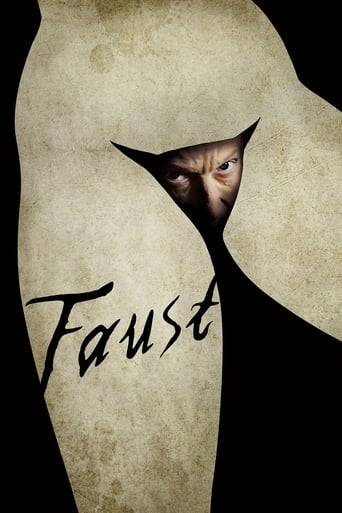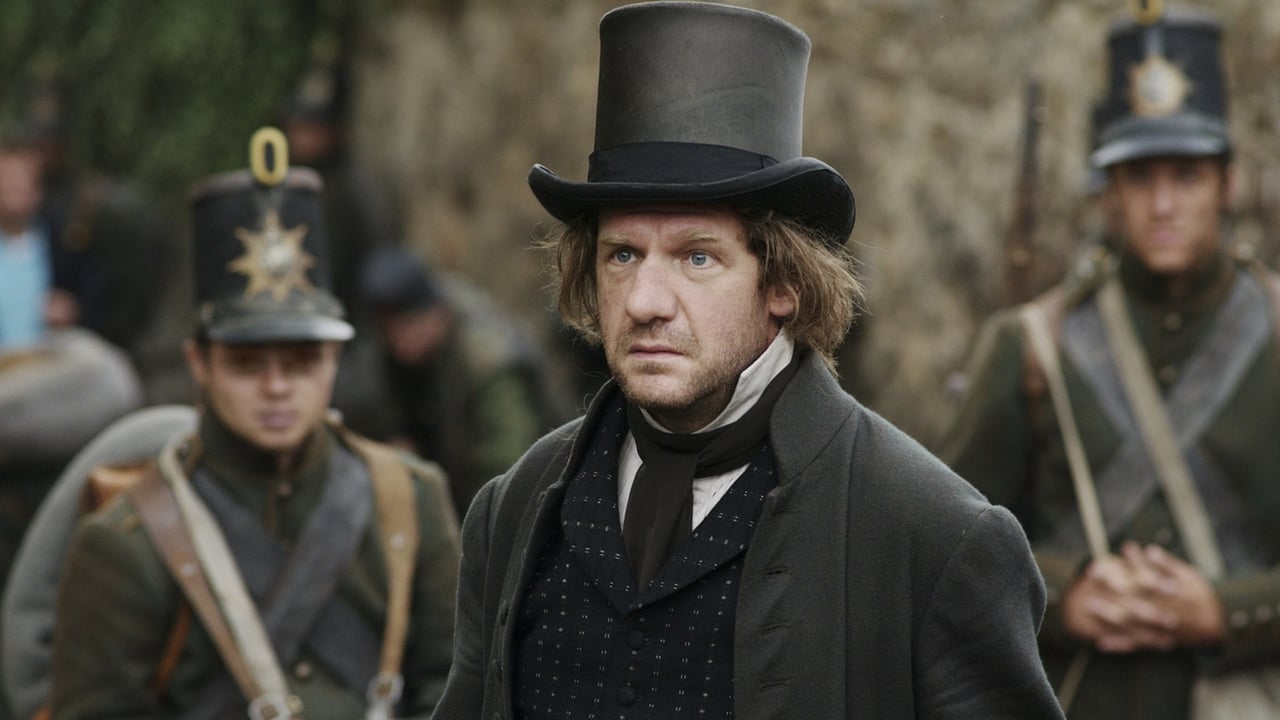Bryan Kluger
Back in 2011, Russian director Aleksandr Sokurov tackled the iconic story of 'Faust', something that has been interpreted and done many times over since Johann Wolfgang von Goethe first wrote the version most recognized days a few hundred years ago. It's quite a big feat to tackle this subject matter and make work on an artistic and entertaining level, but Sokruov make it work and eventually the film went on to win the top award at the Venice Film Festival of that year.If you're unfamiliar with the story of 'Faust', don't let this box art trick you. If you go solely from the box art, you might think this is a very boring period piece, but you would be wrong in that assumption. So wrong in fact, that the movie basically starts out with an image of a corpse's sexual organs. I know, how very 'Nekromantik' of them, right? The film centers on a man named Faust (Johannes Zeiler) who is very interested in what makes the world function, humans love, and if people really have souls.Faust tries to research this and learn for his own sake. He even goes so far as to literally dig and play with people's guts and blood in order to find a higher plane of existence and soul to humanity. And yes, there is enough gore for your horror hounds out there to enjoy. Fast befriends Moneylender (Anton Adasinsky), who is basically the Devil himself, as he takes Faust on a journey through town, showing him the bad things of the world. But Faust soon comes infatuated with a beautiful woman named Gretchen (Isolda Dychauk).Faust literally sells his soul to his new friend the Devil in order to have Gretchen, which sets off a series of events, which ultimately leaves Faust in Hell. Sokurov tends to tell this gruesome and twisted tale in an abstract way, more so than a literal way, and it takes a little time to understand what exactly is going on.His camera-work is excellent and is a new take and very fresh adaptation of this classic tale. The set design is haunting and award worthy as well. The actors deliver on their performances spot on with this type of story telling, which to say the least is not for weak-stomached. It would have been nice to have a more cohesive narrative here, rather than someone narrating for us the entire time and a movie that is made with an abstract eye, rather than a literal one, would have done wonders for the entertainment value here, but one thing is for sure, you won't be able to look away here. This version of 'Faust' is definitely worth seeing.
Baceseras
It begins with the evisceration of a corpse, and that could be a metaphor for the way this alleged adaptation proceeds - except that Goethe's "Faust" is not dead, only given the dead-letter treatment here. The film's emphasis is on gross, clumsy physicality: you never saw so many actors stumble as they walk, bumping into things and one another; too artless and unfunny for slapstick, the universal jostling is prevented from being laughable by funereal pacing and the array of hangdog faces. Since the Faust figure (Johannes Zeiler) conveys very little in the way of intellect, all that elevates him is that most of the other characters have been made open-mouthed gapers, presumable halfwits. Wit is barred out anyway by the color-palette, all various hues of mud - the surest sign of high-serious intentions in movies nowadays. In exterior shots the sky is overexposed so it shows as a gleamless white blur; the earth is dun-colored, greens are gray-tinged, and reds are virtually absent, on their rare appearance tending to brown, like bloodstained linens oxidizing. The cut of the men's clothing updates the story to several decades after Goethe's time: trousers are worn, rather than breeches and hose. The fabrics are thick, heavy, coarse, and of course dark-dyed and fraying badly. No one could think of playing the dandy here. Strangely, there seems to be no Republic of Letters either. The few characters with intellectual interests neither write nor receive letters; they're isolated from enlightenment and worldly affairs: no one awaits the postman; no one looks at a journal of science or politics or the arts - this is a stupefying omission, as false to the historical period as it would be to Goethe's own. Sokurov's flight from historical particulars strands his Faust: the fable and the character become "timeless" in all the wrong ways. Faust doesn't represent his age's high hopes, or its seeds of self-destruction; but then he doesn't represent our age either. Sealed off in its remoteness, Sokurov's "Faust" is just another - all-too-familiar - sulking, glooming art-house reverie.
petra_ste
At the very beginning of Faust, the camera plunges from the sky, descending to a small house in a rural town, and ends up zooming on the penis of a corpse dissected in an autopsy. In his retelling of one of the most famous tales of western literature, director Sokurov plays with symbols, juxtaposing spiritual and worldly, sacred and profane, water (associated with Margarete) and earth, sterility and fertility.See also how the film plays with space: indoor locations are overcrowded and claustrophobic, the town a labyrinth of mud and bricks, the uncanny forest surrounding it resembles Doré's illustrations for Dante's Comedy. Only when Margarete appears - and at the very end - sets become less oppressive. The result is an insidious, subtly disquieting movie.The occasional heavy-handed, distracting symbolism (the egg, the homunculus...) is redeemed by magnificent performances by the three leads. As Faust, Johannes Zeiler is exceptional in his vivid humanity, torn between sensuality and spirituality; as the object of his passion, lovely Isolda Dychauk gives a star-making turn. Anton Adasinsky as the "Moneylender" (the name Mephistopheles is never mentioned) is unctuous, porcine, whiny and malevolent, in a performance which defies all expectations for this kind of character and is all the more unsettling for that.8/10
altyn
Sokurov is in a very different line of business from Goethe. No ennobling Faust's motives here, no redemption thanks to beauty or God's grace. The spectator is cast down onto a greasy, grimy and smelly small-town world where a cynical Dr. Faust states at once that he has not found any soul when dissecting people's bodies. Material problems suffocate his thirst for knowledge, so the tempting devil is the town's moneylender (a character who does not believe in eternal good but believes in eternal evil). Faust lets himself be seduced with only formal protest and does not care a jot about signing his soul away, when the deal is at last offered; but, as he keeps saying, "for this, you must give me more". Margarethe is not enough, meeting the dead is not enough, understanding nature's work is not enough; Faust goes on, apparently to nowhere. It is a visually straining experience, but also enticing in retrospect.


 AD
AD


